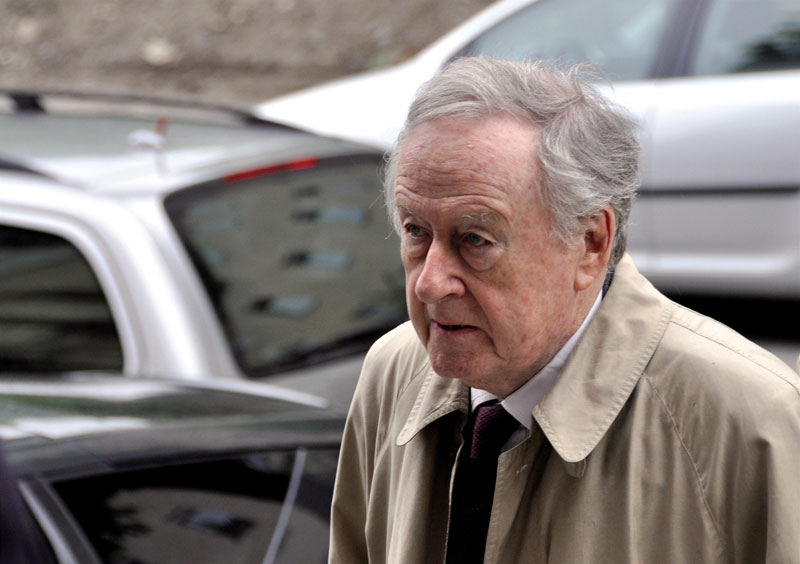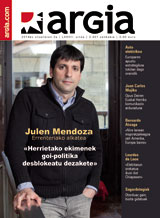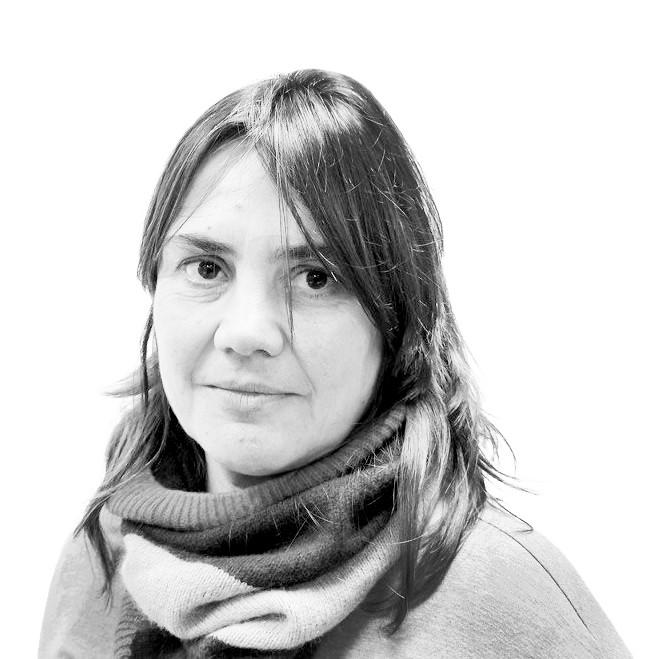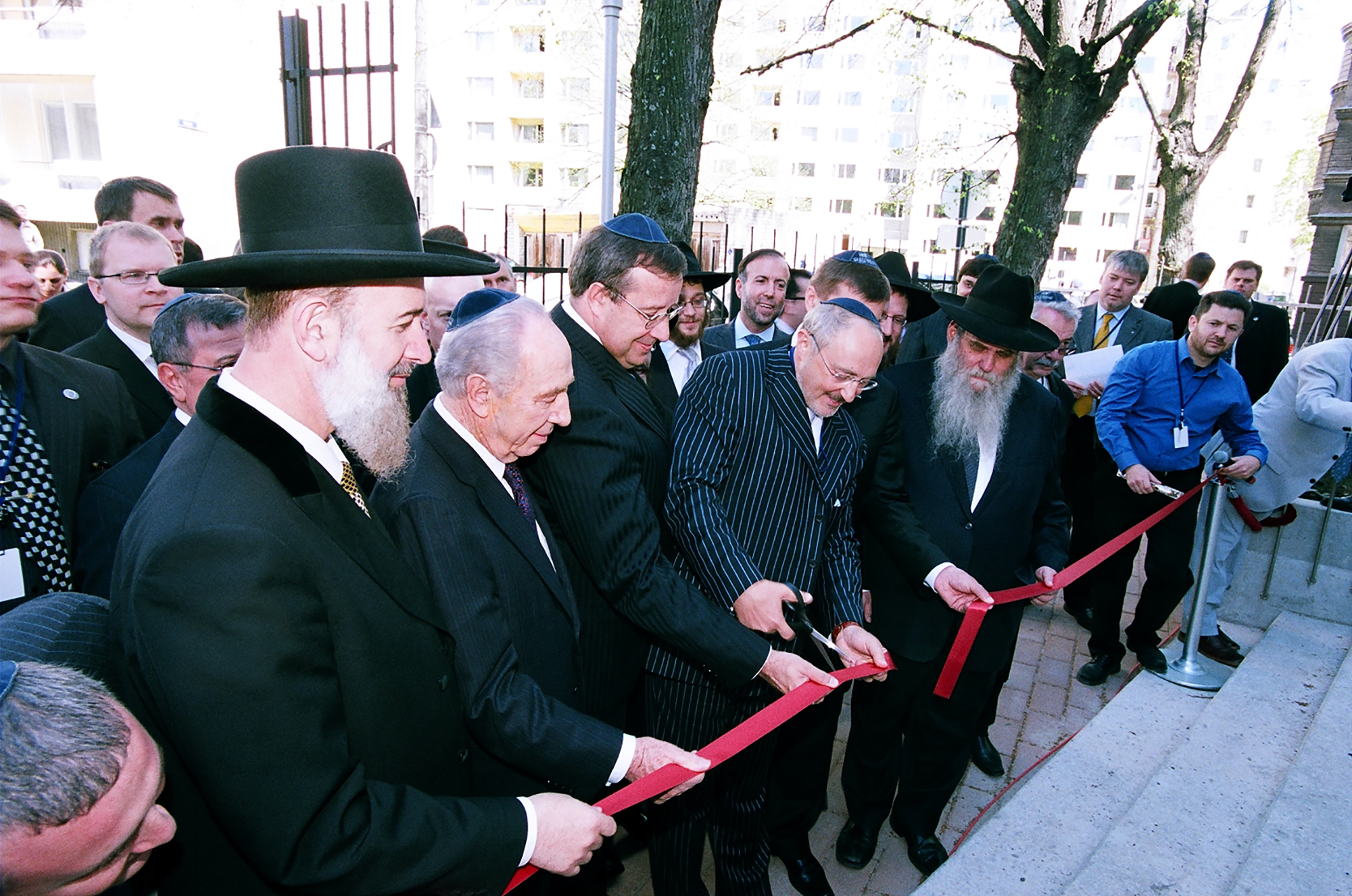Jacques de Groote, the old master of the big robbers of today
- In October last year, he condemned the Belgian Jacques de Groote, along with five Czech businessmen, for having stolen USD 600 million from the Czech State, according to the federal court. On television, there are the smallest perpetrators of crimes: De Groote has been managing director of the International Monetary Fund (IMF) and the World Bank (WB).

If you ask Google for “Jacques de Groote”, in the photo section you will see an 86-year-old noble man. The Managing Director of the World Bank and the International Monetary Fund (IMF) has left few photos in the Basque capital. This is a lifelong medal given to the world's finance elite, one of the few photos taken at the court's door.
In La Libre Belgique Ariane Van Calo summarized the topic in the chronicle “Jacques de Groote condamné à une amende avec sursis” published on October 11: “A very small penalty has been imposed on him, but the Belgian IMF administrator, Jacques de Groot, will resort to it, fight to the end.”
The Swiss federal court, based in Bellinzona, has imposed a fine of 75,000 Swiss francs in the case of the Czech MUS mine. In 2011, six Czech citizens of the company MUS and De Groote were charged for money laundering and economic criminality for the same facts. The defendant has believed that they have been made with more than one Czech energy company for fraud (...) organizing a confusing network of companies distributed in many countries, including Switzerland, the same company to steal and buy with the company’s funds, without paying a penny.”
Today we know who De Groot is, trapped in a conflict that has not been echoed in the news reports, thanks to Eric Toussaint. Toussaint Attac, one of the most well-known leaders of alterglobalists at European level, and the Third World Debt Elimination Commission (CADTM), has recently offered him a raw leaflet: Procès d’un homme exemplaire (The question of a model man).
An example for the economic and political elites that have guided Europe’s orientations, yes, De Groot. In his biography, summarized by Toussaine, you can read that in 1960, when he was 32 years old, he worked as an official at the negotiating table that should allow the independence of the Congo, then Belgian.
On 30 June 1960, the Congolese Prime Minister, Patrice Emery Lumumba, delivered a memorable speech to Belgian King Baudouin [known in Spain as Balduino], in which he called for the liberation of the whole of Africa, promising that “Congo is the star of the whole of Africa” and that he would care “for its children to enjoy the results of our homeland.”
Lumumba, with his boldness, was going to lose his head. Mobutu General Sese S took him prisoner and killed him the following year. Several Congolese forces were locked in the coup, but without concealing it at the service of the Belgian and US authorities. In those years, De Groote was working in the World Bank and in the IMF, in the Belgian delegation. At the same time, it advises the Central Bank of the Congo.
Coincidence? In his book “World Bank: the permanent coup d’état”, Toussain explains how this international institution and Belgium agreed, together with the Mobutu regime, that Belgium’s debt in the Congo would fall into the new state.
Congo to Czech by Rwanda
Since the independence of Haiti in 1804, the colonial powers have always done the same thing: debts for investments and expenditures in colonies to take advantage of the metropolises, paying after independence to the people of those colonies. And in popular theories, freed, using the puppets of the rulers, even larger debts originated.
As they were cold-war times, dictators like Mobutu were allowed to do crazy things of all kinds, admiring countries like Congo and enriching Mobutu at the same time.
De Groote was Executive Director of the World Bank and the IMF between 1973 and 1994. Among them was the support of the Western powers to Mobuturi to crush the rebels through military blows in different countries of South America (Chile, Argentina...). And also the genocide in Rwanda.
The one from Rwanda has been particularly emphasized by Toussaint, who, in addition to being one of the most seemingly clean international institutions, De Groote was an advisor to mining corporations with economic interests in Rwanda.
It is known that in 1994 one million Tutsi people died in Rwanda in three months, together with several thousand Hutus from the moderate parties. However, this undeniable genocide also had very obvious economic roots, little mentioned.
Between 1976 and 1994, Rwanda ' s debt increased twenty times, on the recommendation of the institutions chaired by De Groote. But the World Bank and the IMF ordered in 1990 the government of dictator Juvenal Habyarimana to devalue his currency by 67 per cent. Thousands of farmers, mainly those engaged in the export of coffee, had been left in misery. Social disaster first, genocide later.
The neoliberal journal Wall Street Journal had denounced in 1990 that De Groot, together with his role as institutional manager, was carrying out consultancy work by private companies. Questioned about this, De Groot replied to the newspaper Le soir: "What's my fault if a friend has a mine in Rwanda? And what is my fault if I had to go to the bank and ask that friend for money?”
Since no one had reproaches for him, he has continued to age. He discovered what he had done in the massive privatizations of the fall of the Soviet Union and then of the companies of the communist countries. In the great theft of the 1990s the new Russian and Eastern oligarchy of Europe was enriched, while Western banks and multinationals bought everything that was worth in the East in exchange for money.
In 1998 he became president of Appian Group after leaving international institutions. Headquarters in Switzerland, with 15,000 workers spread all over the world. He bought in the Czech Republic, selling statues, the engineering section of Skoda and the MUS mining company. Alain Aboudaram gave him $500,000 for the operation to the justice that denounced him for fraud and scam.
By purchasing the SSM, the company stole the money it had in the box and thus paid the purchase debt. 660 million Swiss francs carried into their pockets, EUR 534 million. Debts, bankruptcy, privatization, theft... In 2014, it works the same.
EUR 904 billion. This is the annual cost of corruption in the European Union, according to a study carried out in 2020. Between 2008 and 2020, 3,743 cases of corruption were published in the media, of which 109 corresponded to Hego Euskal Herria. Of course, we will find more... [+]
























.jpg)
